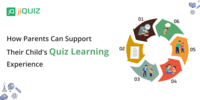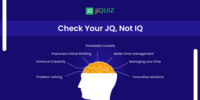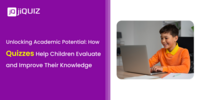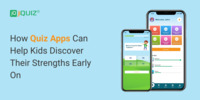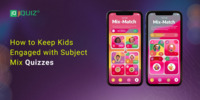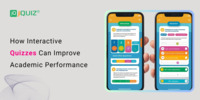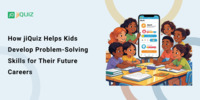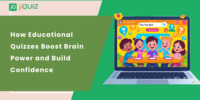- Jun 19, 2025
- Career & Skills
- 386
Share this post on:
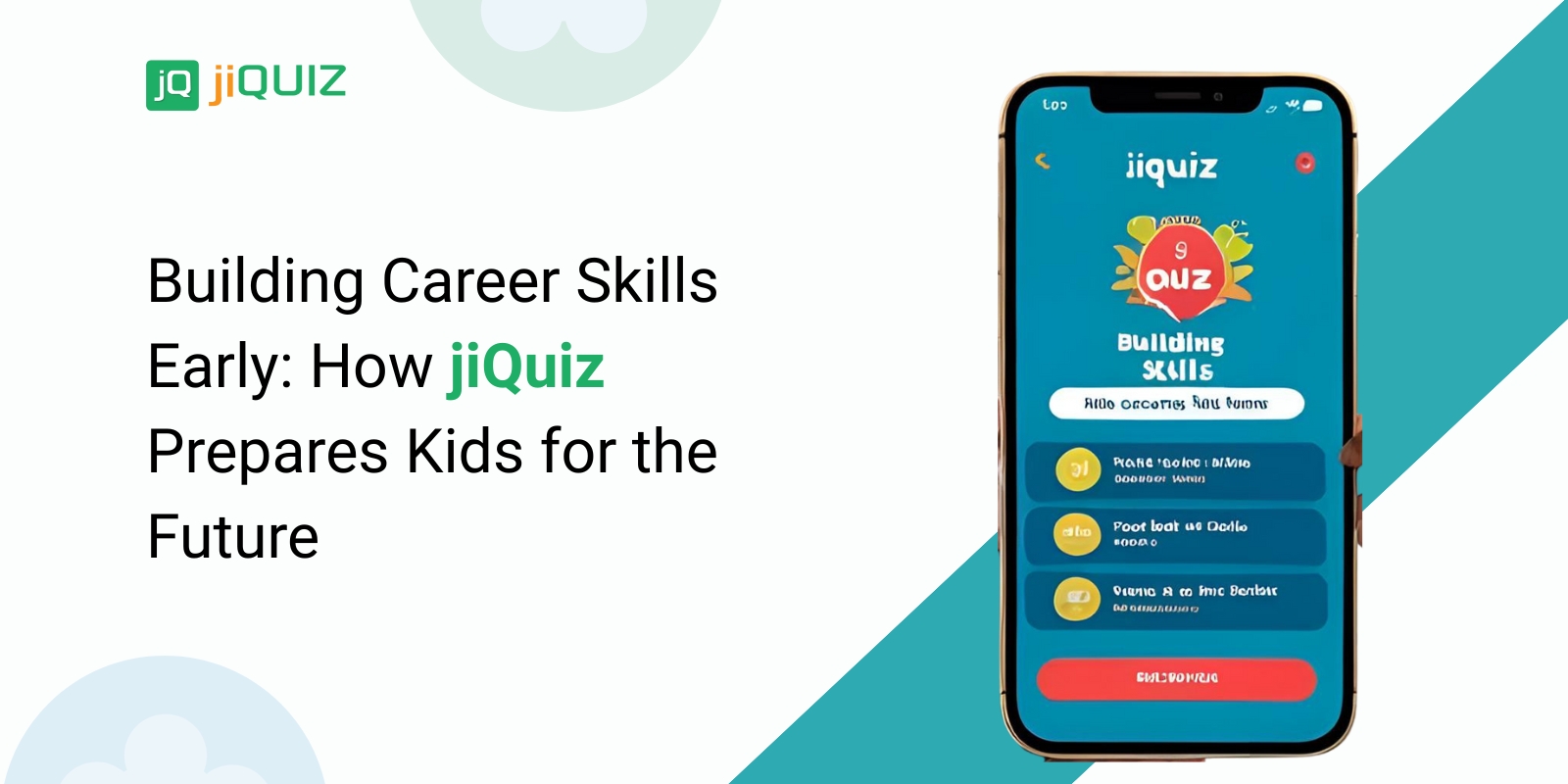
The world is changing at a dizzying pace. The careers of tomorrow will likely look drastically different from the jobs available today. This shift demands a new approach to education – one that moves beyond rote memorization and focuses on developing adaptable, resilient, and creative individuals. While traditionally career preparation has been associated with high school or college, the truth is, building foundational career skills should start much earlier. And innovative tools like jiQuiz are proving that learning can be both engaging and future-focused, even for young children.
Why Early Career Skills Matter
The idea of prepping a 6-year-old for a career might sound premature, but it’s less about preparing them for a specific job title and more about equipping them with the skills they'll need to thrive in any future role. These skills are often called "soft skills" or “essential skills,” and they are increasingly valued by employers across all industries. Here's why fostering these skills early is crucial:
- Adaptability: The future is unpredictable. Children who learn to adapt to new situations, technologies, and challenges will be better positioned for success.
- Problem-Solving: The ability to analyze problems, brainstorm solutions, and implement them is a cornerstone of any successful career.
- Critical Thinking: Evaluating information, forming reasoned judgments, and making informed decisions are vital skills in a world saturated with data.
- Communication: Clearly and effectively conveying ideas, both verbally and in writing, is essential for collaboration and leadership.
- Collaboration: Most work involves teamwork. Learning to cooperate, share ideas, and compromise are crucial for successful collaboration.
- Creativity & Innovation: The ability to think outside the box and generate new ideas is increasingly valuable.
- Resilience: Bouncing back from setbacks and learning from failures are key to long-term success.
- Digital Literacy: Comfortable navigating and utilizing digital tools will be a non-negotiable skill for future generations.
The Traditional Approach – And Its Limitations
Traditional education often prioritizes academic knowledge, sometimes at the expense of these essential skills. While a strong academic foundation is important, it's not enough. Memorizing facts and following instructions, while important, doesn't always foster the initiative, creativity, and problem-solving skills needed to truly excel. Furthermore, the "one-size-fits-all" approach of many classrooms can fail to engage children with different learning styles and interests.
Enter jiQuiz: Gamified Learning for Future-Ready Kids
jiQuiz is emerging as a valuable tool for addressing this gap. It's not about replacing traditional learning; it's about supplementing it with engaging, game-based activities that build essential career skills. Here's a deeper look at how jiQuiz and similar platforms contribute:
- Gamification for Engagement:jiQuiz leverages the power of gamification – the application of game-design elements in non-game contexts. Kids are naturally motivated by games; the rewards, challenges, and sense of accomplishment create a positive learning experience. This intrinsic motivation is far more effective than relying solely on external rewards like grades.
- Skill-Based Quizzes & Challenges: jiQuiz offers a wide variety of quizzes and challenges designed to target specific skills. These aren’t just about testing knowledge; they often present scenarios requiring problem-solving, critical thinking, and decision-making. Examples might include:
- Logic Puzzles: Develops logical reasoning and problem-solving skills.
- Coding Challenges (Simplified): Introduces basic programming concepts, fostering computational thinking.
- Creative Writing Prompts (Interactive): Encourages imaginative thinking and communication skills.
- Decision-Making Scenarios: Presents realistic situations where kids must make choices and consider the consequences.
- Teamwork Simulations (Online): Creates opportunities for collaborative problem-solving.
- Personalized Learning Paths: Many platforms like jiQuiz use adaptive learning technology. This means the difficulty and content adjust based on the child's performance, ensuring they are challenged but not overwhelmed. This personalized approach caters to different learning styles and paces.
- Immediate Feedback & Iteration: The instant feedback provided by online quizzes allows kids to immediately understand their mistakes and learn from them. This iterative process encourages experimentation and a growth mindset.
- Promoting a Growth Mindset: The focus on challenges and learning from mistakes encourages children to embrace difficulties and see failures as opportunities for growth. This is a critical component of resilience and adaptability.
- Boosting Digital Literacy: Navigating the jiQuiz platform itself helps children become more comfortable with digital tools, an essential skill for the future workforce.
Specific Skill Development Through jiQuiz Examples:
Let's break down how specific activities within jiQuiz can build key skills:
- Problem-Solving & Critical Thinking: Imagine a quiz that presents a scenario: "Your toy robot isn't working. What are three things you could try to fix it?" This requires children to identify potential problems and brainstorm solutions.
- Communication: A quiz that asks children to describe a picture using descriptive language strengthens their vocabulary and ability to articulate ideas.
- Collaboration: A collaborative quiz could task kids with collectively building a virtual structure, requiring them to communicate, compromise, and share responsibilities.
- Creativity & Innovation: A quiz that asks children to invent a new gadget or improve an existing one encourages imaginative thinking and problem-solving.
- Resilience: A quiz that presents challenges and rewards persistence (e.g., "Try again! You're getting closer!") helps children learn to persevere through setbacks.
Beyond the Quiz: Cultivating a Future-Ready Mindset
While platforms like jiQuiz provide a valuable tool, it's important to remember that building career skills is about more than just completing online quizzes. Here’s how parents and educators can complement these digital resources:
- Encourage Exploration: Provide opportunities for children to explore their interests and try new things.
- Promote Curiosity: Foster a love of learning by asking open-ended questions and encouraging exploration.
- Provide Real-World Experiences: Expose children to diverse experiences, such as volunteering, attending workshops, and visiting museums.
- Model Lifelong Learning: Demonstrate a commitment to learning and personal growth.
- Embrace Failure: Create a safe space for children to take risks and learn from their mistakes.
- Focus on the Process, Not Just the Outcome: Praise effort, persistence, and creativity, rather than just focusing on grades or scores.
Conclusion: Investing in the Future – One Quiz at a Time
The future of work will demand individuals who are adaptable, creative, and resilient. By introducing children to essential career skills early through engaging tools like jiQuiz, we're not just preparing them for specific jobs; we're equipping them with the tools they need to thrive in an ever-changing world. It’s an investment in their future, and the future of innovation itself. Let's move beyond traditional rote learning and embrace a new approach that fosters curiosity, creativity, and a lifelong love of learning.

